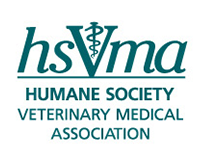The Veterinarian's Voice Against Animal AbuseBy Debra Teachout, DVM, MVSc July 11, 2011 While it is still surprising to me, I am a consultant on animal cruelty cases. This is by far the hardest—but at the same time, the best—non-paying job I have ever had. I certainly did not plan to be an animal cruelty consultant when I graduated from veterinary school, but it happened. A few years ago while I was attending The Humane Society of the United States' annual Taking Action for Animals conference in Washington D.C., I gave my business card to a staffer with Mercy for Animals (MFA), a group that focuses on farm animal welfare. I told him I really admired their mission, and if there was ever anything that I, as a veterinarian, could help them with, to please let me know. Veterinary insight is necessary in abuse casesMonths later I received an email from the Mercy for Animal’s Director of Investigations asking for my help evaluating the welfare, conditions and treatment of animals shown in an undercover video. It was footage from an egg farm. It was extremely disturbing; I had rarely seen anything so heartbreaking in its exposure of institutionalized animal suffering and abuse. It galvanized my resolve to do anything I could do to stop the horrific treatment of animals held captive on factory farms. I realized that by providing a veterinary opinion on the conditions, housing and treatment of animals captured on this video, I could help. This meant watching the sobering, sad and infuriating video over and over to make sure I made accurate statements and opinions on every detail of the appalling conditions and lack of regard for the animals’ welfare.
Since that time in 2009, I have provided veterinary opinions about welfare and cruelty for eight more MFA undercover investigations. I never look forward to the next one, but when the abuse stops—when animal cruelty charges are brought to bear on the persons responsible or when the farm in the video eventually makes changes to improve the welfare of the animals—my difficult job has been worth it. You may have seen the recent MFA video taken at the E6 Cattle Co. in Hart, Texas, as it received a lot of media attention. In the video, workers are shown killing injured, sick or dying calves by repeatedly beating them over the head with hammers and pick axes until they eventually stop trying to kick or move. Although not all of the calves are dead, they are thrown on the dead pile to suffer and die slowly. No veterinary care is available to the 10,000 animals housed at this facility. The brutality is egregious, the housing conditions are deplorable, the neglect is unconscionable and the despair is shocking. As a result of the video, the local District Attorney in Castro County has issued warrants charging five workers with felonies and the owner and manager with misdemeanors for cruelty to animals. A call to action for all veterinariansMany people ask me why I put myself through the misery of watching the mistreatment of defenseless animals. Individuals, including veterinarians, often tell me they can’t even make it through part of the video, it’s so horrible. Simply put—I do it because it makes a difference. It gives me a chance to do something about the cruelty. If the animal agriculture industry doesn’t think anyone is watching, they can continue the abuse. Cruelty is cruelty, whether it involves a pig, a hen or a dog. It becomes my business as a veterinarian when animals are treated inhumanely. And I find that I’m not alone. The E6 Cattle Co. story also caught the full attention of the American Veterinary Medical Association’s Executive Vice President, Dr. Ron DeHaven. Stating that the standard AVMA press release condemning the abuse felt inadequate in this case, he authored an open letter that basically said enough is enough. He wrote that there are too many videos of farm animal abuse surfacing to consider them isolated incidents, and that there are too many excuses and attempts to shift blame by producers. He warned that if those responsible for the good welfare of animals cannot meet that responsibility, more oversight will become necessary. He described the need for greater involvement from veterinarians to prevent the abuse. He ended with the strong words, “We can do it the easy way, or we can do it the hard way. But either way, it must be done.” I take Dr. DeHaven’s letter as a call to action for all veterinarians. All of us know animal abuse and cruelty when we see it. As veterinarians we possess the knowledge and credentials necessary to speak out on animal welfare. All veterinarians would certainly agree that animals should not be denied medical care or be subjected to cruelty, abuse and a lifetime of misery.  Debra Teachout, DVM, MVSc Why should it be any different for farm animals? They deserve better, too. They ought to be able to count on your veterinary voice. It may be the hardest, yet most rewarding work you will ever do. With one undercover video review, one letter or one testimony, you have the chance to affect considerable positive change in the lives of thousands, or even millions, of suffering animals. I can’t think of a better use of my veterinary degree. Dr. Debra Teachout practices small animal medicine at Pulaski Animal Hospital in Chicago, Ill. She has completed post-graduate course work in animal welfare, and this fall she will be teaching a course in Animal Health and Behavior in the Sheltering Environment for Humane Society University. |
